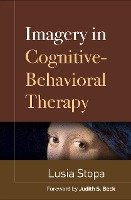Richly illustrated with clinical material, this book presents specific techniques for working with multisensory imagery in cognitive-behavioral therapy (CBT). Leading researcher-clinician Lusia Stopa explores how mental images--similarly to verbal cognitions--can trigger distress and drive maladaptive behavior. She guides the therapist to assess imagery and help clients to recognize and explore it. A range of interventions are described, including imaginal exposure, imaginal reliving, rescripting, working with self-images, and using positive imagery to improve well-being. Extensive sample dialogues and a chapter-length case example demonstrate the techniques in action with clients with a range of frequently encountered psychological problems.

